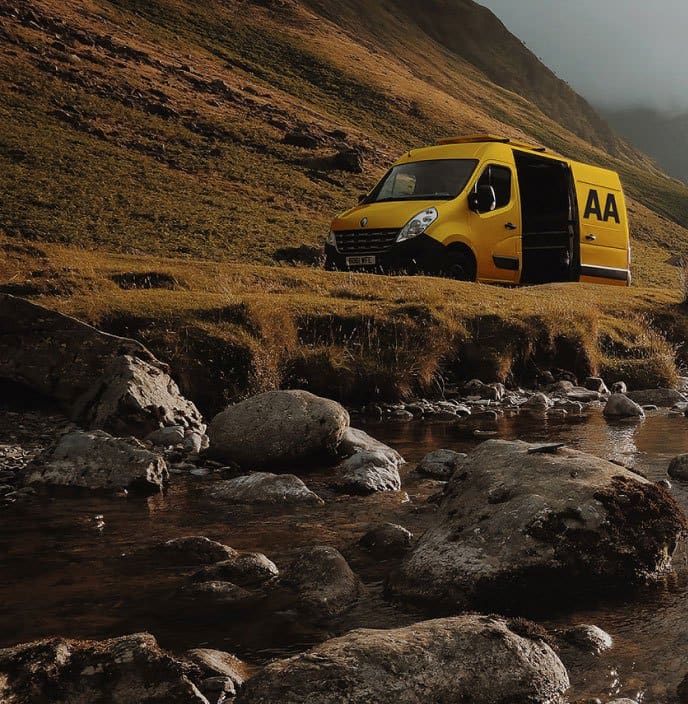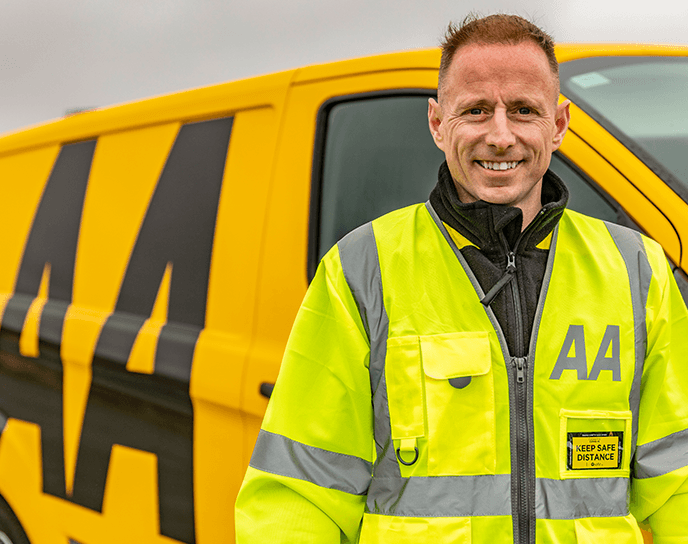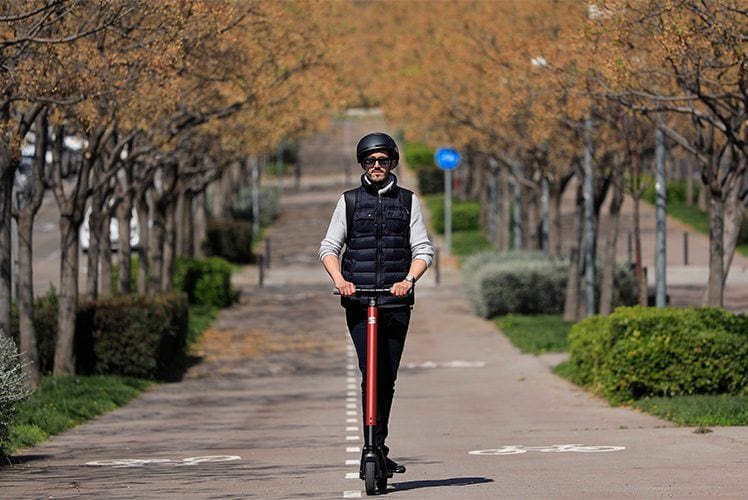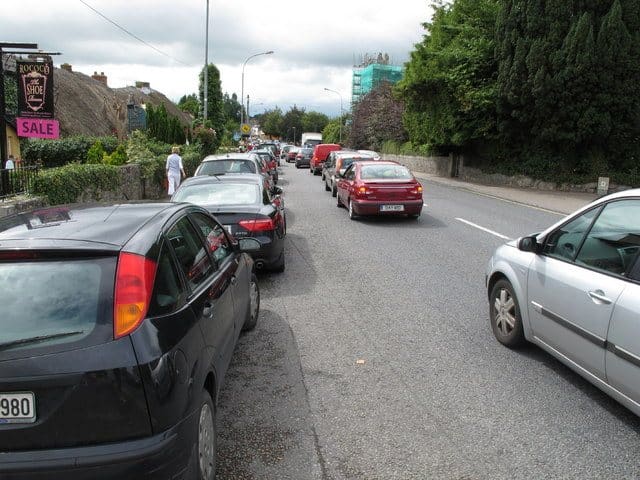Around 49% of people think e-scooters should be made legal in Ireland, while 39% do not think they should, according to a recent poll of 8,241 AA customers by AA Ireland.
It comes following the announcement on Tuesday that Cabinet approved a new Road Traffic Bill, which legislates the use of e-scooters and e-bikes on Irish roads for the first time. The Bill is due to go before the Dáil and should be concluded before the end of this year.
Upon announcing the news, Minister for Transport Eamon Ryan TD said: “I am very pleased to be able to publish this important legislation, which I hope to introduce in the Dáil in the next few weeks. We committed in the Programme for Government to resolving legal barriers to the use of e-scooters, as well as e-bikes, and this Bill will deliver on both of those commitments”.
“These proposals in the Bill should be seen as part of our wider efforts to encourage alternative forms of mobility, reduce our culture of reliance on the private car and open opportunities for active and healthy travel,” he further added.
Road Traffic and Roads Bill 2021
Currently, e-scooters are classed as ‘mechanically propelled vehicles’. This means that they cannot be used in a public place without tax, insurance and an appropriate category of driving licence.
According to a spokesperson for An Garda Síochána, at present any users of such vehicles in a public place, as defined in the Road Traffic Act 1961, will be subject to “penalties under road traffic laws, including fixed charge notices, penalty points, fines and possible seizure of the vehicle, for not being in compliance with these requirements”.
However, this could all change very soon. A spokesperson for the Department of Transport stated that the Road Traffic and Roads Bill 2021 will create a new vehicle category to be known as ‘Powered Personal Transporters’ (PPTs) which will include e-scooters and similar devices.
“The proposed legislation will allow the subsequent introduction of regulations setting out the safe use of e-scooters, the technical standards that must be met and conditions around their use or misuse,” they added.
If e-scooters are to be made legal, 65% of those recently surveyed by AA Ireland said insurance should be required when using the vehicles, 41% said tax should be required and 54% voted for the requirement of a licence.
However, this will not be the case, as the new Bill provides for “an amendment to the definition for a mechanically propelled vehicle to exclude PPTs from its scope, and so permit the use of PPTs without imposing the registration, tax, licencing and insurance conditions associated with conventional motor vehicles”.
Safety
AA Ireland’s survey also found that 60% of people do not think e-scooters are used safely in Ireland, 27% think they are used safely “most of the time”, while 2% think they are used safely all the time.
If legalised, 64% said strict speed limits should be put in place, while 84% said safety restrictions should be put in place – such as obligatory helmets, lights and hi-vis clothing.
4% of people said e-scooters should be allowed on footpaths, while 35% said users of e-scooters should follow the same rules as bicycles.
Under the new Bill, a speed limit of 25kmph will be implemented, as well as measures on how to deal with using the vehicles under the influence of alcohol, careless driving and/or using mobile phones while driving. An age limit will also be introduced, making it an offence to supply PPTs to persons under the age of 16 years.
PPTs will not be allowed on motorways or bus lanes, but drivers will be permitted to use cycleways.
The new Bill will also provide for the amendment of section 20 of the Road Traffic Act 1961, “to allow a member of An Garda Síochána to examine or test a PPT to ensure it does not have a dangerous defect. If a dangerous defect is discovered, the driver may be instructed not to use the PPT in a public place until the defect is remedied and may be required to present the PPT for a further examination or test at a specified time and place”.
The future
The future of e-scooter use in Ireland looks bright as we edge closer to the legalisation of these vehicles, with vital safety measures in place. E-scooters are now a widely used means of transport in cities such as Paris, Berlin, Barcelona and Madrid, so it looks like we are following a similar path.
Here, Dublin Bus is looking at potentially including e-scooters as part of its services, allowing commuters to ride from the bus stop to their final destination. As well as this, micro mobility company Bird plans to launch in Ireland later this year, in line with the passing of the Road Traffic and Roads Bill 2021.
Taxi app FREE NOW has also welcomed the introduction of legislation for e-scooters, with the company launching a new e-scooter booking option via their app in the coming months.
Anna Cullen from AA Ireland states that: “The AA is broadly supportive of the proposed conditions of use and the introduction of legislation to allow for the use of e-scooters in Ireland, believing that doing so will have a great potential to help further reduce our over-reliance on the private car for day-to-day commuting”.
“It is important, however, that at all times any supporting legislation legalising such devices protects the safety of all road users through restrictions on what kind of e-scooter can be used and where.”
“As the use of such devices increases in the coming years, assuming for their legalisation, a greater investment in infrastructure to meet the needs of those commuting by both conventional bicycle and e-scooter will certainly be needed,” says Cullen.
In addition to allowing for e-scooters to be allowed on Irish roads, the new Bill also contains laws to deal with dangerous and anti-social off-road use of scramblers and quads, legislation to support implementation of the BusConnects strategy and the introduction of a variable speed limit system on Dublin’s M50.
“We are supportive of the other parts of this wide-ranging Bill, namely the introduction of laws to deal with dangerous and anti-social off-road use of scramblers and quads and the introduction of the variable speed limits on the M50 should help to alleviate traffic problems if it is properly enforced,” adds Cullen.










